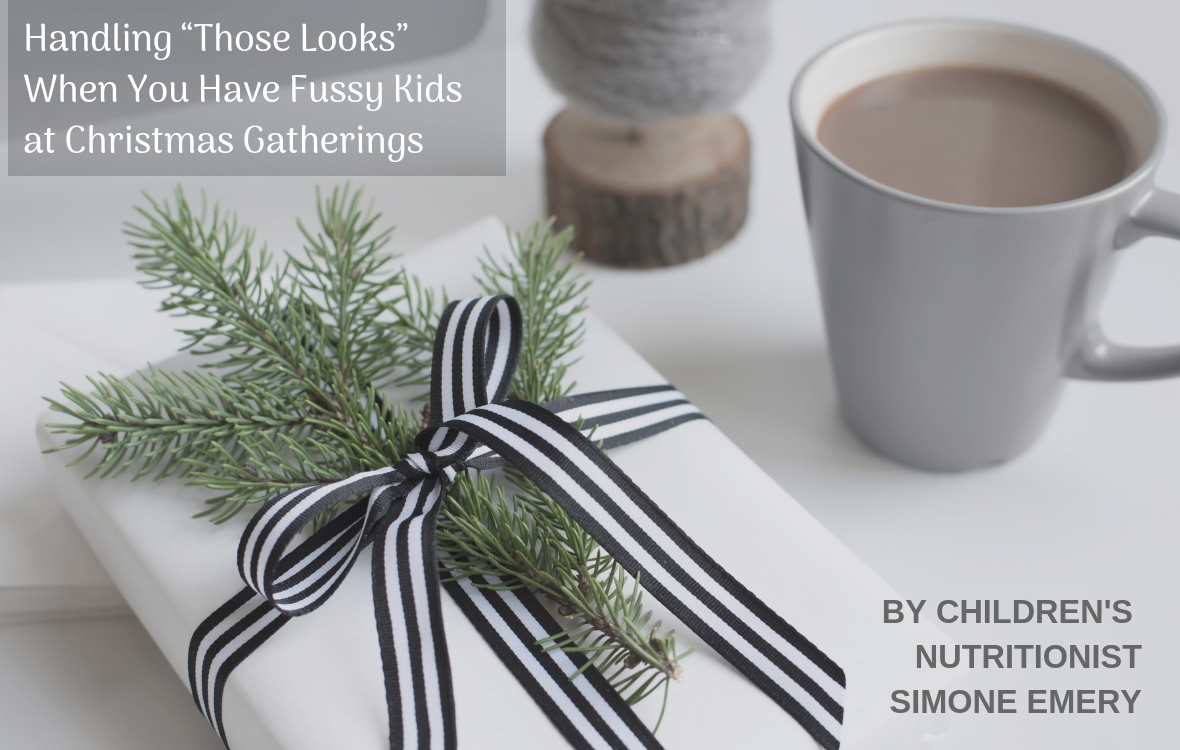As a parent with a fussy eater, you have no doubt been served up your fair share of common-wisdom-but-oh-so-wrong advice when it comes to managing your child’s fussy eating behaviour. And as I have written about here for Kiddipedia previously, the myths surrounding feeding children run rampant. Christmas also throws a whole lot of “extra special” anxiety into the mix. Therefore, even when armed with great plans for working with your child and their eating, a look, comment or “tut tut” at Christmas time makes you feel very disheartened.
As a mum and nutritionist with clinical experience in extreme fussy eating, I understand that seeing the relationship with food for your child be tumultuous is gut-wrenching on its own. Let alone, when you feel the eyes of the world are on your child (or on your parenting). So, here are a couple of ideas to help you feel more assured in your approach to helping your child.
-
Bring along a food you know your child will eat.
Then offer this food to share with everyone at the Christmas meal. “Georgie chose this popped corn for everyone to share in the middle of the table with our lunch today. ” This will ensure your child is included. Inclusion is a very important part of the meal for children.
-
Let your child start with an empty plate and put things on it that they choose.
Being handed a loaded plate of food is very overwhelming. There are lots of inputs happening here for children, especially children that are excited about Christmas day. So even if they only select a few crackers, avoid the temptation to draw any attention to the situation. You can then diffuse anyone else that may notice your child’s small appetite with a remark on how Christmas excitement really impacts your appetite too.
-
Remember not to let your inner narrative take over your thoughts.
There are a million things to think about on Christmas day. You have the choice about what your inner narrative is telling you. I love this Mark Twain quote that highlights just what our internal story (AKA our inner narrative) may lead us to think; “I’ve lived through some terrible things in my life. Some of which actually happened.” We can focus on a few looks or comments and they do turn into terrible things. Or we can elect to choose one of the other 999,999 things to think about.
-
If you are anticipating that an individual will make a big deal of it, cut them off early.
As uncomfortable as a few awkward sentences may feel, it may help you deliver a succinct message early. This can ensure that the looks and comments are diffused at the source. Try a private conversation along the lines of “I appreciate how much love you have for my child and how his/her eating is going. We are working on it. The best way to be on his/her team is to let him/her learn at their own pace. The best way forward for us all is to minimise food talks and try not to watch him/her too closely.” Tip: you can practice the sentence over a couple of times so you have it worded in your own style or even send something like this in a text message in advance.
You may also like to read:









